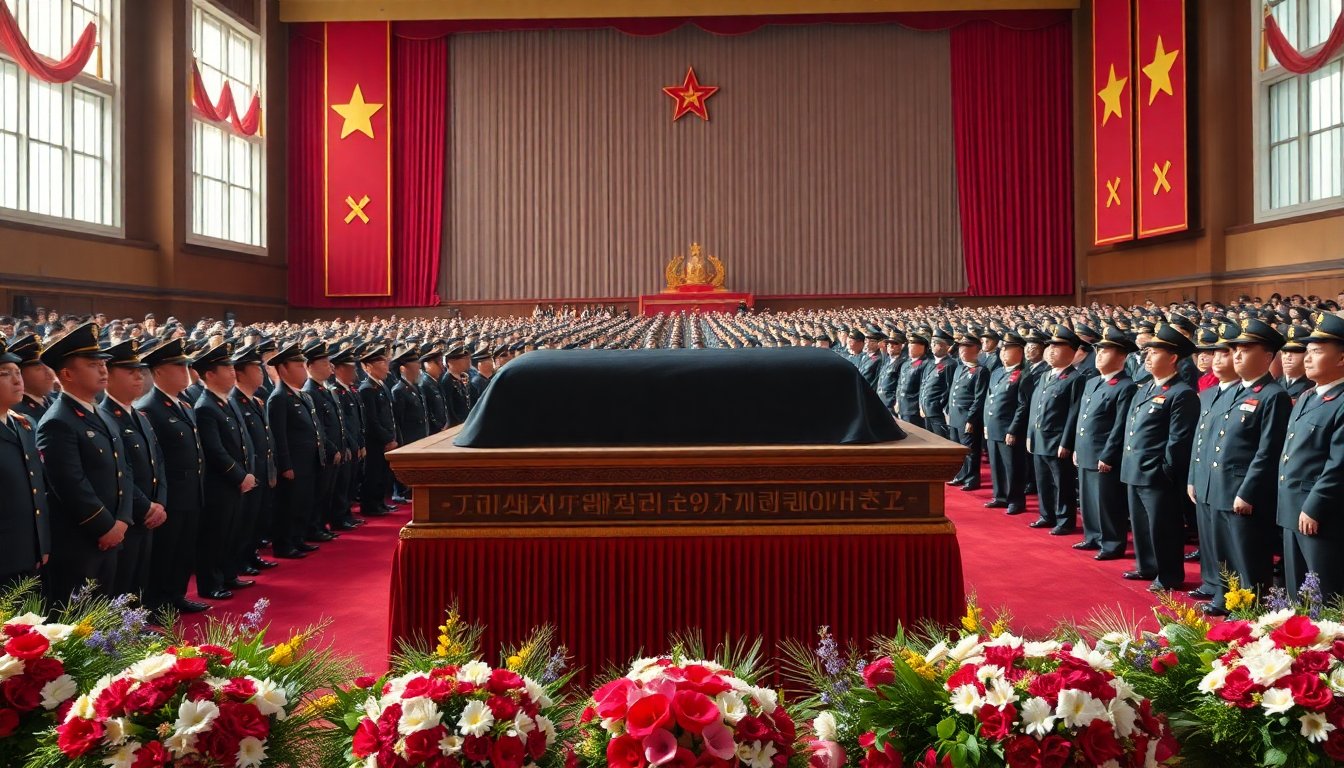Table of Contents
In a surprising turn of events, North Korean leader Kim Jong Un was recently seen mourning over the casket of fallen soldiers during a state-run cultural event. This heartfelt moment, captured and broadcasted by North Korean media, comes at a time when the regime is keen to emphasize its military partnership with Russia amid the ongoing conflict in Ukraine. But what does this emotional display really tell us about North Korea’s current political narrative and its relationship with Moscow?
A somber tribute amidst political ties
The footage aired on state media showed Kim Jong Un placing a North Korean flag over the coffins of troops reportedly killed while supporting Russian military operations in Ukraine. This act of mourning went beyond mere grief; it was part of a larger narrative aimed at celebrating North Korea’s alliance with Russia. Notably, this event coincided with the first anniversary of the “comprehensive strategic partnership” treaty established between the two nations, signaling a deliberate effort to reinforce this alliance through shared military experiences.
During the cultural performance held at the East Pyongyang Grand Theater, Kim appeared visibly emotional, with Foreign Minister Choe Son-hui by his side. The imagery presented in the broadcast not only highlighted Kim’s personal sorrow but also stirred feelings of solidarity and patriotism among the North Korean populace. By showcasing such tributes, the regime is making a calculated move to consolidate its power and justify its military engagements abroad.
Shaping the narrative through cultural performances
The cultural event also featured images of North Korean soldiers alongside their Russian counterparts, creating a sense of camaraderie that viewers could resonate with. Adding to the drama, a bloodstained notebook, reportedly recovered from the battlefield, was prominently displayed. Phrases like “The decisive moment has finally come” and calls to fight for the “beloved Supreme Commander” were crafted to strike a chord with nationalistic sentiments.
Analysts argue that such displays are carefully designed to foster a narrative of victory and resilience, which is essential for maintaining morale within North Korea. The presence of high-ranking officials, including Russian Culture Minister Olga Lyubimova—who was also seen teary-eyed during the event—highlights the emotional and political significance of these cultural exchanges. This collaboration seems aimed at solidifying the bonds between North Korea and Russia, especially as international tensions continue to rise.
Implications for North Korea’s domestic and foreign policy
Kim Jong Un’s emotional display serves multiple purposes. Domestically, it strengthens the regime’s narrative of strength and unity, presenting a leader who sympathizes with the sacrifices made by his military. This emotional connection is vital for maintaining the loyalty and support of the North Korean people, particularly during challenging times.
On the international stage, these events send a clear message of defiance against perceived enemies and a commitment to the military alliance with Russia. As North Korea navigates its place in global politics, such performances play a crucial role in shaping perceptions and reinforcing alliances. The ongoing conflict in Ukraine provides a unique opportunity for North Korea to position itself as a key player in the geopolitical landscape, leveraging its military contributions to gain influence in international relations.


